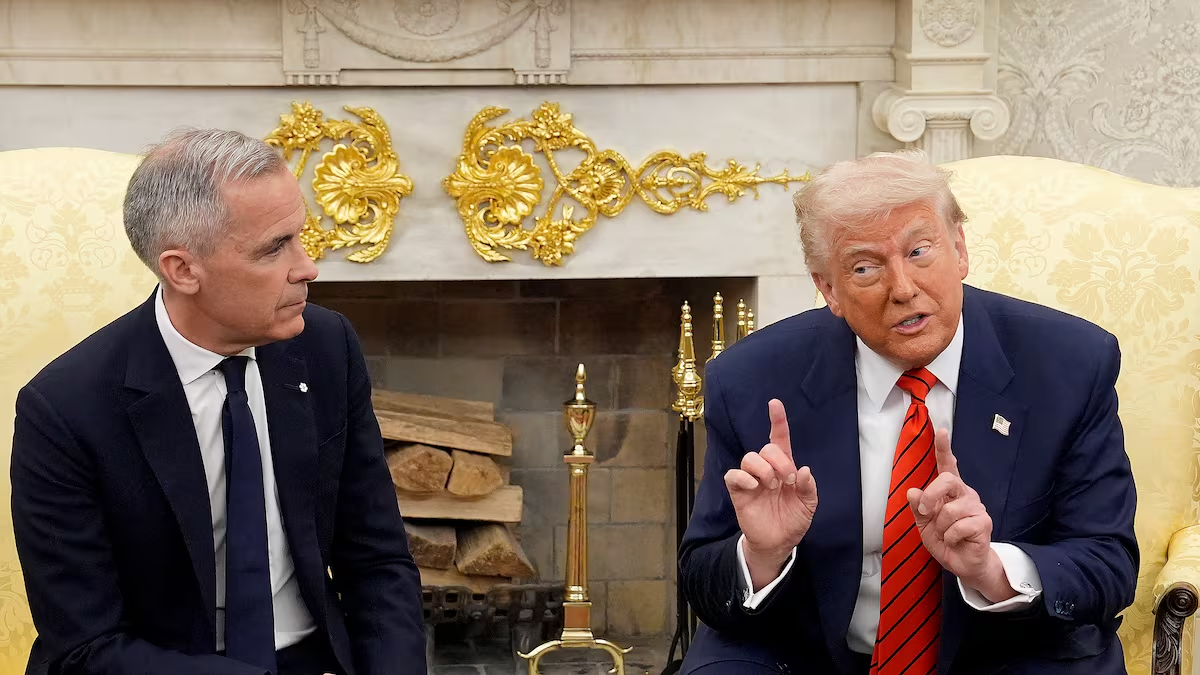U.S. President Donald Trump has warned that Canada’s formal recognition of Palestinian statehood will make it “very hard” for the United States to finalize a trade deal with its northern neighbor. The comment, made via a post on Trump’s Truth Social platform, came just hours before his self-imposed August 1 deadline to reach an agreement—or else impose steep tariffs.
“Wow! Canada has just announced that it is backing statehood for Palestine,” Trump wrote. “That will make it very hard for us to make a Trade Deal with them. Oh’ Canada!!!”
This statement adds further complexity to ongoing trade talks between the two countries. Prime Minister Mark Carney acknowledged earlier on Wednesday that the negotiations may not conclude in time, despite significant efforts. He described the discussions as comprehensive and constructive, covering a wide range of issues including defense, security, and investment.
Trump has threatened to impose a 35% tariff on Canadian goods if a deal isn’t reached by the deadline. The White House clarified that products already compliant with the Canada-U.S.-Mexico Agreement (CUSMA) would be exempt from these duties.
In addition to the looming tariff threat, Canada is already dealing with the impact of Trump’s Section 232 tariffs on steel, aluminum, and automobiles. The president has also signed new executive orders imposing 50% tariffs on semi-finished copper products, though refined copper was spared—providing some relief to the Canadian industry.
Trump also announced the suspension of the de minimis exemption, which had allowed cross-border shipments valued at $800 or less to enter the U.S. duty-free. The president cited the fentanyl crisis as justification for the move.
Canadian business groups were quick to respond. Dan Kelly, President and CEO of the Canadian Federation of Independent Business, called the suspension “bad news” for small exporters, noting that roughly a third of Canadian small businesses relied on the exemption for shipping to American customers. Pascal Chan of the Canadian Chamber of Commerce said the move would add “another layer of uncertainty,” especially for small and mid-sized enterprises already strained by cross-border complexities.
Meanwhile, Trump has been rapidly striking deals with other countries ahead of the deadline, albeit ones that often come with high tariff tags. South Korea, for instance, agreed to a 15% tariff and committed to $350 billion in U.S.-controlled investments and $100 billion in LNG or energy product purchases. The president also announced new arrangements with Pakistan to develop its oil reserves, although he did not specify any tariff terms.
Frameworks for trade deals have also been announced with the EU, Japan, Vietnam, Indonesia, the Philippines, and the UK, all under the condition that each country would face baseline tariffs unless they negotiated otherwise. Trump has publicly stated that countries can “buy down” their tariffs by committing to large-scale investments and purchases from the U.S.
In sharp contrast, Trump has shown little enthusiasm for dealing with Canada. He has repeatedly accused Canada of imposing exorbitant tariffs on U.S. agricultural products, telling reporters, “They’ve been charging our farmers 200 per cent, 300 per cent, 400 per cent for years and nobody did anything about it.”
Despite the pressure, Prime Minister Carney remained firm that Canada will only sign a deal that is in its national interest. He confirmed that Intergovernmental Affairs Minister Dominic LeBlanc and a team of senior officials will stay in Washington to continue talks.
Carney’s cabinet met virtually on Wednesday to discuss both trade and escalating tensions in the Middle East. The prime minister emphasized Canada’s commitment to finding a fair trade resolution while upholding its independent foreign policy decisions—including its support for a two-state solution in the Israel-Palestine conflict.

